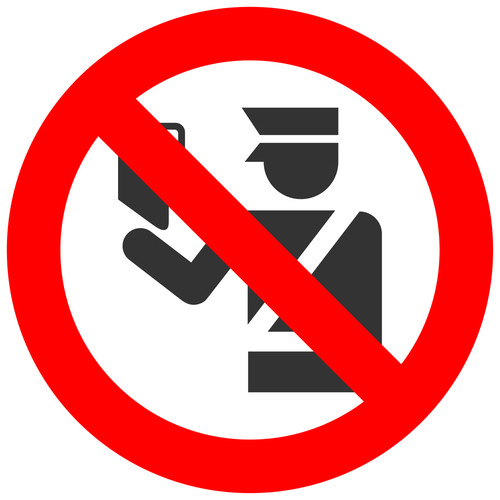
Did you know that there are hundreds of cruises that you can take that don’t require a passport? Even when you are sailing through international waters and docking in a foreign country? It’s true. Although there are very strict requirements mandating that you must have a passport for air travel (if you want to be allowed back into the country), there are entirely separate rules for cruises without passports.
Related Post: That Time I Foolishly Forgot Our Family Passports
Basic Rule for Cruises Without Passports
Cruises that are deemed “closed loop cruises” – meaning the cruise ship itinerary starts and ends in the same U.S. port – have lesser standards for travel requirements. You can sail any of those cruises without passports. Basically, you just need proof that you are who you say you are and proof that you are a U.S. citizen.
This is the official word from U.S. Customs and Border Protection (CBP):
U.S. citizens who board a cruise ship at a US port within the Western Hemisphere and return to a U.S. port on the same ship (Closed Loop Cruises) may present a government issued photo ID, along with proof of citizenship (birth certificate, Consular report of Birth Abroad or Certificate of Naturalization.) U.S. and Canadian citizens under age 16 may present a birth certificate or alternative proof of citizenship when entering by land or sea.
https://www.cbp.gov/newsroom/local-media-release/cbp-advises-summer-travel-us-caribbean
The CBP cautions that while U.S. on closed-loop cruises can enter the United States with a birth certificate and government-issued photo ID, citizens should be aware that they may still be required to present a passport to enter the countries their cruise ship is visiting. And, it urges travelers to “check with your cruise line to ensure you have the appropriate documents.” https://www.cbp.gov/travel/us-citizens/western-hemisphere-travel-initiative
Finding Suitable Cruises Without Passports
It is extremely easy to find a closed-loop cruise that doesn’t require a passport to sail. Most Caribbean cruises start and end in the same U.S. port — usually Florida. But this also applies to cruises sailing round trip out of New York, Baltimore, New Orleans, Galveston, Jackson, Mobile, and Charleston. For instance, according to the cruiseline.com search engine, there are 137 closed-loop Caribbean cruises scheduled to sail in March of 2018. So your family can sail any of those spring break cruises without passports. Likewise, for this summer (June-August), there are 224 such sailings. Again, potentially hundreds of cruises without passports could be great family vacation options. There are also many options for Mexican Riviera cruises that sail out of a California port.
And, the rule about closed-loop cruises applies beyond Caribbean cruises. Cruises that sail New England/Canadian itineraries could also be eligible. Likewise, the rule covers Alaska cruises to the extent your itinerary must include stops in Canada.
Related Information: Family Cruisers: Use This Easy Tool to Quickly Weed Through Dozens of Cruise Lines

Why Would You Cruise Without a Passport?
There are many circumstances where getting a passport is not feasible or practical.
Sometimes simply isn’t time to get passports using normal channels. Passport processing time can take as long as 6 to 8 weeks. For a description of processing time and potential delays, see Successful Travelling Begins with a Passport .
Notably, there can be some meaningful hoops to jump through before successfully procuring a passport for kids. Any deviations from that default procedure require some more hoops. Check out the State Department rules for applying for passports for kids under 16 for details.
Also, most people don’t need to access their passport every day, and they may not discover that it is lost, misplaced, or expired until shortly before they are scheduled to leave. Sometimes folks don’t have access to the required paperwork – such as ongoing adoption proceedings or foster care situations. Or, sometimes an outstanding tax bill or other legal obligations can prevent the issuance of a passport.
Finally, plain old money can be a hurdle. The standard fees for passports are $135 /per adult and $105 per child. If you want expedited treatment (meaning 2-3 weeks) an additional $60 charge per passport applies. See State Department website for more details. At $100+ a pop, for a large family whose kids aren’t likely to use a passport again before it expires — other options seem much more attractive.
In contrast, you very likely have copies of your birth certificates on hand, as well as government-issued photo i.d. for the adults in your family. And, even if you have to get new copies of birth certificates, those fees will be substantially less than the passport fees described above.
Are Cruises Without Passports Unduly Risky?
Although the U.S. government clearly allows you to exit and re-enter the U.S. without a passport on a “closed loop cruise,” most cruise lines and travel professionals strongly urge passengers to travel with a passport anyway. The theory being that some unexpected disruption could prevent you from entering and exiting the same port on the ship as originally planned. The Royal Caribbean website provides a good example of such warnings:
Royal Caribbean International strongly recommends that all guests travel with a valid passport during their cruise. This greatly assists guests who may need to fly out of the United States to meet their ship at the next available port should they miss their scheduled embarkation in a U.S. port; guests entering the U.S. at the end of their cruise; and guests needing to fly to the U.S. before their cruise ends, because of medical, family, personal or business emergencies, missing a ship’s departure from a port of call, involuntary disembarkation from a ship due to misconduct, or other reasons.
Guests who need to fly to the United States before their cruise ends will likely experience significant delays and complications related to booking airline tickets and entering the United States if they do not have a valid U.S. passport with them. For additional passport information visit www.travel.state.gov.
http://www.royalcaribbean.com/beforeyouboard/passportGuidelines.do
Although true, these warnings regarding the litany of potential emergencies that would require you to have a passport seem a bit overstated. People lose passports all the time. Or, sadly, have them stolen. Literally hundreds of thousands of U.S. passports are reported lost or stolen each year. See Uh-Oh, Where’s My Passport?
Procedures for Emergency Passports
An established procedure exists for U.S. citizens travelling abroad to obtain emergency or temporary passports on an expedited basis. This is the same procedure one would follow if they didn’t have a passport to begin with and become unexpectedly separated from their closed loop cruise. The State Department spells out the process on its website here.
Notably, the State Department recognizes that some folks have immediate travel plans. They can issue a limited-validity emergency passport quickly so that you can return home. These limited validity passports can be issued in as little as 24 hours. For more information, see, for example, What to do if you lose your passport while traveling abroad.
Bottom line, I am not advocating that you skip getting a passport if it is feasible to do so. I’m just saying that if the only thing standing between you and a closed-loop cruise is a fear that some unexpected emergency may pop up that disrupts your proper return — get on the ship. There is no reason to believe that risks associated with sailing without passports are substantially higher than all of the other unfortunate events that disrupt travel plans.
Furthermore, if that problem occurs, you have an established straightforward remedy. The remedy employed by all those (thousands of) folks whose passports are lost or stolen while traveling.
***
